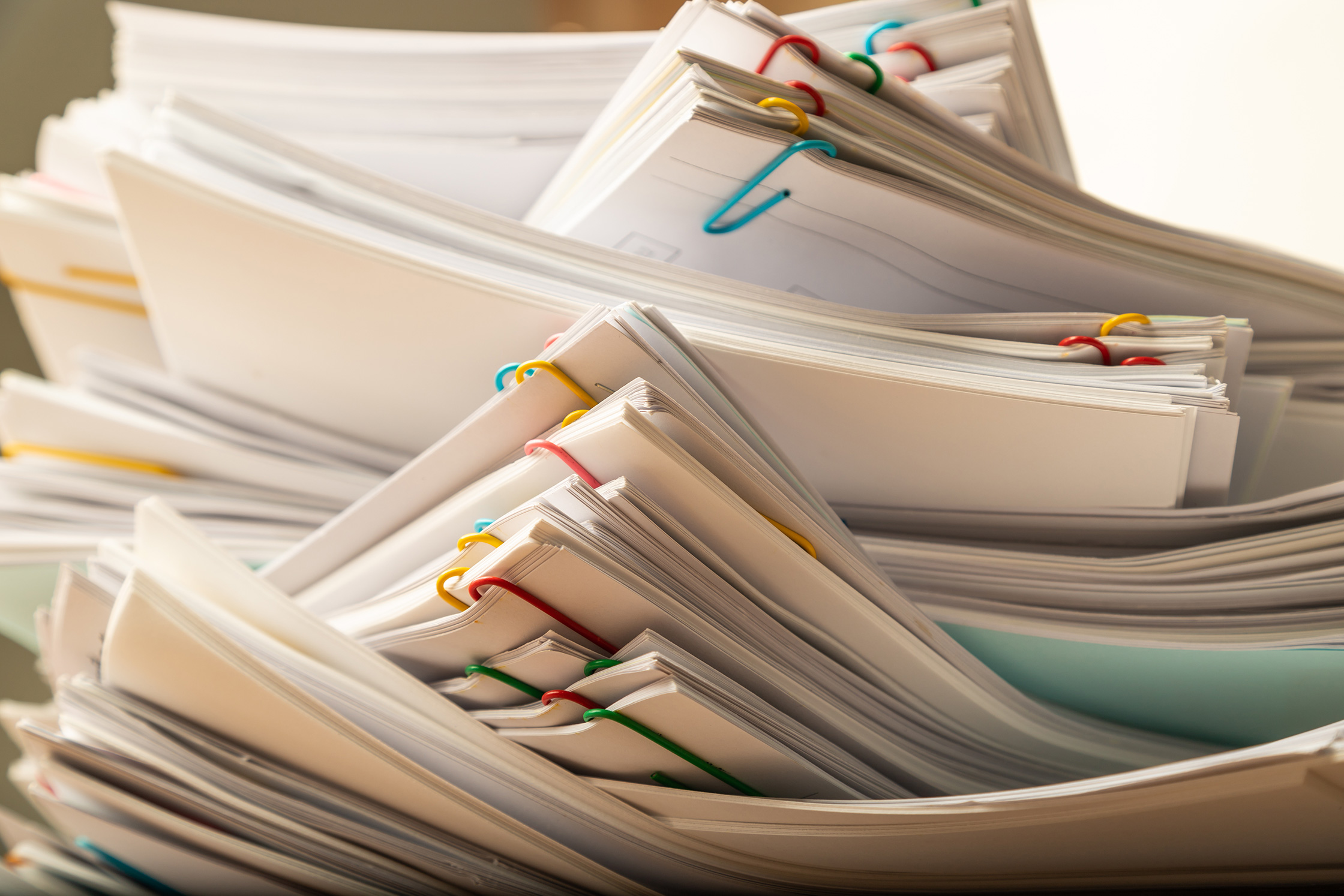How Long Should You Keep Real Estate Documents?

Managing your real estate paperwork efficiently is crucial for avoiding future legal complications and ensuring you have the necessary documentation when needed. However, knowing how long to keep these documents can be confusing. Here's a comprehensive guide on the retention periods for various real estate documents.
Deeds and Title Documents

Deeds: Your deed proves your ownership of the property. You should keep it indefinitely as it is a permanent record of your property rights.
Title Documents: Similar to deeds, title documents should also be retained for as long as you own the property. This includes:
- Title insurance policy
- Abstract of title
- Survey reports
Note: These documents are crucial during property transfers or in case of title disputes. Keep them safe and ensure they are easily accessible.
Home Purchase/Sale Documents

When buying or selling a home, you accumulate several documents:
- Sales contracts
- Closing disclosures
- Settlement statements
- Inspection reports
These should be kept for:
- 7 years: Tax purposes, especially for capital gains or losses calculations.
- Indefinitely: For reference in case of future property transactions or disputes.
Note: While it might be reasonable to discard certain documents after 7 years, keeping them indefinitely provides a comprehensive history of the property's legal and financial journey.
Mortgage and Loan Documents

Mortgage papers and loan agreements need to be kept for:
- 6-7 years after full payment: This is the typical retention period for tax records and potential audits.
- Indefinitely: For reference, particularly if the property could be refinanced or if the mortgage involves adjustable rates.
Rental Property Documents

If you're a landlord, maintaining accurate records is not just good practice but a legal requirement. Here’s how long you should keep these documents:
- Lease Agreements: Keep for at least 3 years after the end of the lease term.
- Maintenance Records and Invoices: Retain for 3 to 5 years or as per local regulations.
- Rental Applications: Although not always required, keep for 1-3 years due to potential disputes or discrimination claims.
Note: Keep in mind, some states might have different requirements for how long rental records need to be retained, so check local laws.
Home Improvement and Construction Records

Documents related to home renovations or construction:
- Home improvement contracts
- Permits
- Payment records
- Final architect or contractor bills
These should be kept for:
- 7 years: For tax deductions or capital gains tax calculations.
- Indefinitely: To increase your home's resale value, showing potential buyers what work has been done.
Note: Keeping detailed records of home improvements can also help in case of disputes over work quality or liens placed by unpaid contractors.
Insurance Policies

Keep copies of home insurance policies:
- 7 years: This aligns with most statutes of limitations for insurance claims.
- Indefinitely: For properties that might be held long-term or as an heirloom.
Additionally, receipts for premium payments should be retained for 6 years or as long as you might need to make a claim.
Tax Records

Tax-related real estate documents like:
- Property tax receipts
- Mortgage interest statements
- 1098 forms
These documents should be kept for 7 years to cover the period during which the IRS could potentially audit you.
In summary, the length of time you should keep real estate documents depends on their purpose:
- Documents proving ownership or providing historical context should be retained indefinitely.
- Financial and tax-related documents often require a minimum of 6-7 years.
- Rental property records might need less time but still require careful retention to comply with landlord-tenant laws.
Ensuring you have these documents organized can protect your rights, support your tax filings, and facilitate smooth property transactions. Keep them in a secure, fire-resistant location, and consider digitizing them for easy access and to avoid physical loss.
Can I store my real estate documents digitally?

+
Yes, storing real estate documents digitally is a wise strategy. It not only provides easy access but also protects against physical damage. Ensure digital copies are encrypted and backed up regularly to maintain security and availability.
What should I do if I lose my property deed?

+
If you lose your property deed, contact your title company or the local county records office. They can provide you with a certified copy or guide you through the process of obtaining a replacement.
How long should I keep records for a property I’ve sold?

+
For properties sold, keep all related documents for at least 7 years due to IRS audit periods and potential legal claims. Indefinitely keeping some documents might be prudent for historical reference, especially if there are potential future issues with the sale.
Can I throw away documents once their retention period ends?

+
It’s generally safe to discard documents once their retention period has passed, but you might consider shredding or securely disposing of personal financial information to prevent identity theft.
Are there any exceptions to these retention periods?

+
Yes, there can be exceptions. Legal disputes, special tax circumstances, or specific state laws might require longer retention periods. Always check with your attorney or tax advisor for personalized advice.



